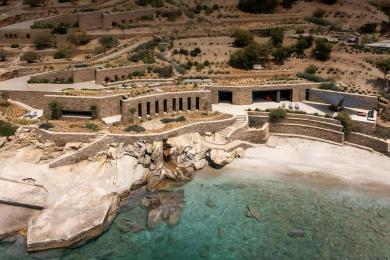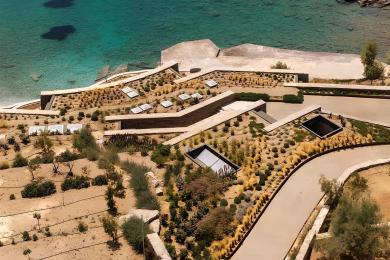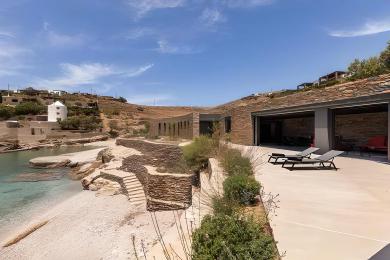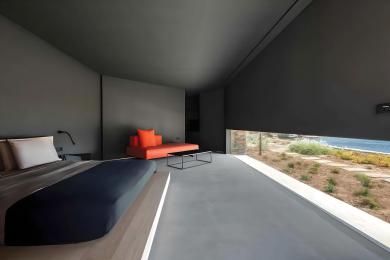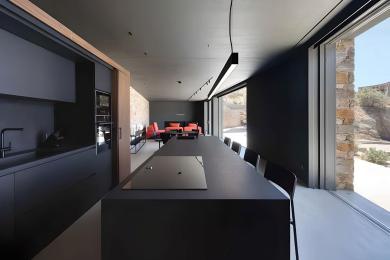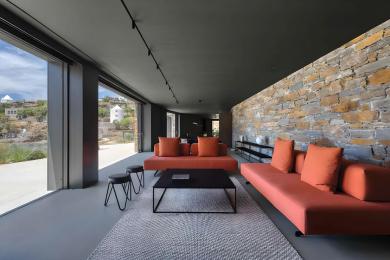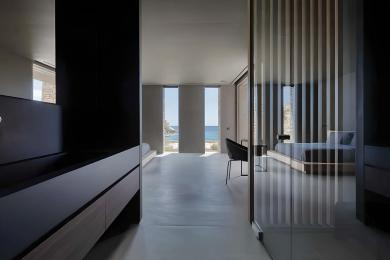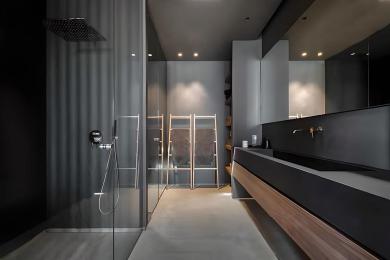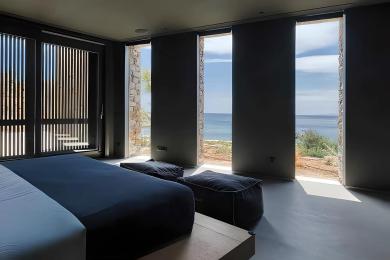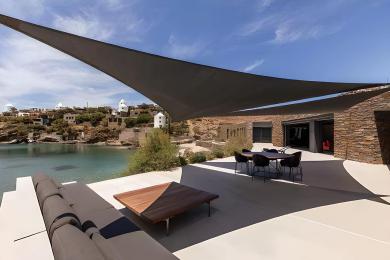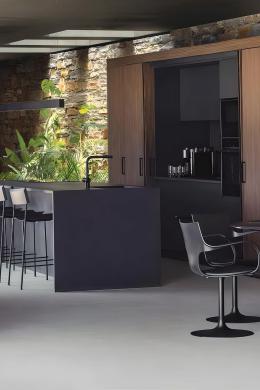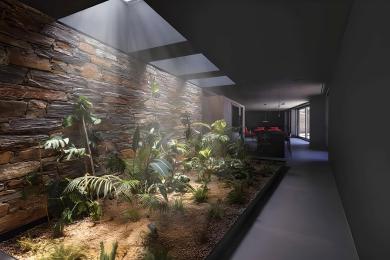- Β
Nestled on the western side of Kea Island, this subterranean residence occupies the historic site of old stone warehouses once used for loading goods onto boats in a sheltered bay. The complex, previously converted into a restaurant, has been meticulously redesigned to cater to the needs of tranquil summer living, seamlessly blending with the natural landscape.
Architectural Features
Access and Layout:
Entry to the property is from the higher part of the plot through a light ramp that leads into the ground, establishing the main circulation axis.
A glass pivoting door opens into an interior garden illuminated from the ceiling, replacing the old dark kitchens.
The central axis branches off to one side leading to a spacious living area encompassing a kitchen, dining room, and living room, all directly connected to the courtyard through large sliding doors.
The other side leads to two ensuite bedrooms situated behind a curved stone wall with narrow, linear windows and cupolas providing natural light to the service spaces.
Guest House:
The layout is completed with a guest house adjacent to the bedrooms, featuring a separate entrance and an impressive low horizontal opening that offers horizon views from the bed's height.
Outdoor Spaces
The extensive outdoor area, bordering the sea, includes a large terrace with an irregular shape that follows the natural rock lines, discreetly divided into separate sections. The outdoor living area, adjacent to the interior living spaces, is shaded by two tensile canopies. A tiered path leads directly to a small beach, offering easy access to the sea.
Materials and Finishes
The dominant material throughout the building is the local natural stone from the original warehouse, giving the structure the appearance of dry-stone walls interspersed with interior and exterior spaces.
Floors are finished with cement in a sand color, while extensive earthen surfaces on the terrace and roof integrate the building into the arid island landscape.
The interior features dark shades with modern gray partition walls, black metal details and frames, and fixed furniture made of black stone and walnut.
Furnishings and Environmental Considerations
The furnishings are minimal and lightweight, in the same dark tones as the building, with the exception of vibrant orange central sofas in the living room and guest house.
The building harmonizes with the landscape through its organic lines, planted roof, and natural materiality.
Additionally, it is equipped with an energy management system to minimize its environmental footprint and a household desalination unit to utilize its seaside location without burdening the water reserves of the fragile island ecosystem.
This residence exemplifies a perfect blend of traditional architecture and modern design, providing a serene retreat that respects and enhances its natural surroundings.
